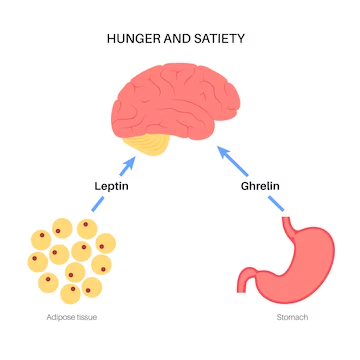Weight loss is a common goal shared by people of all ages, cultures, and backgrounds. Whether it’s for health, confidence, or overall well-being, many individuals seek to shed extra weight. But true and lasting weight loss goes beyond quick diets or extreme workouts. It involves adopting healthier habits and maintaining them consistently over time.
For most people, weight loss isn’t just about appearance. It’s about improving health, reducing the risk of chronic conditions, and feeling better every day. It also helps people build a healthier relationship with food and develop a more active lifestyle that fits into daily routines.
Achieving long-term weight loss success means understanding what works and avoiding common myths. It takes more than willpower—it involves learning how the body works, setting realistic goals, and staying motivated. In this article, we’ll look at sustainable weight loss methods, the science behind losing weight, common mistakes, and the mindset needed to stay on track.
The Science Behind Weight Loss

To embark on a successful weight loss journey, it’s crucial to understand the science that drives weight management. Weight loss happens when the body burns more energy than it consumes. This is often referred to as a “caloric deficit.”
Calories and Metabolism: The Fundamental Forces Behind Weight Loss
At its most basic level, the human body requires energy to carry out everyday activities, and this energy is measured in calories. The total number of calories burned each day is mainly controlled by your metabolism—a series of chemical reactions that support vital body functions such as breathing, digestion, and circulation. Metabolic rate differs from person to person and is influenced by various factors including age, biological sex, and the amount of muscle a person has.
Energy Balance: The Concept of Calories Consumed vs. Calories Expended
In order to lose weight, it’s important to create an energy deficit by consuming fewer calories than the body needs to maintain its current condition. This imbalance forces the body to use stored fat as a source of fuel. Although the concept may seem simple, reaching this energy balance is often complex due to the influence of different variables like eating habits, portion control, food quality, and physical activity levels.
Hormonal Influence on Appetite and Metabolism RegulationHormones play a crucial role in managing hunger signals and the body’s ability to process energy. Ghrelin, often referred to as the “hunger hormone,” increases appetite, while leptin helps signal when you’re full. Insulin is another key hormone that regulates blood sugar levels and promotes fat storage. When these hormones are out of balance, it can make weight loss more difficult, which is why it’s important to approach weight loss with a full-body, balanced mindset.

Common Weight Loss Myths
In the world of weight loss, misinformation is rampant. Here are some common myths and misconceptions:
Spot Reduction: Is It Truly Effective?
Many people believe that performing exercises focused on certain body parts—such as the abdomen or thighs—can reduce fat specifically in those areas. However, scientific research does not support this idea. While exercises like sit-ups and crunches can strengthen and tone abdominal muscles, they do not directly eliminate fat from that region. Fat loss tends to occur more generally across the body through overall physical activity and proper nutrition.
The Low-Carbohydrate Diet Trend: Temporary Craze or Lasting Solution?
Low-carbohydrate eating plans have become increasingly popular in recent years. However, they may not be suitable or necessary for everyone. Completely avoiding carbohydrates might not offer long-term benefits for most individuals. A more effective and sustainable strategy is to prioritize the quality of carbohydrates—by choosing whole grains, fruits, and vegetables—rather than eliminating them altogether.
Why Severe Calorie Limitation Fails in the Long Run

Drastically reducing calorie intake can produce rapid weight loss in the short term, but it often has negative consequences. These include the loss of muscle mass and a slowdown in metabolic rate. This can make it much more difficult to keep the weight off in the future and may lead to repeated cycles of weight gain and loss, commonly known as the “yo-yo effect.” A balanced, moderate approach to eating tends to be more beneficial over time.
Mindset Matters: Psychological Factors in Weight Loss
The journey to losing weight is as much mental as it is physical. Psychological factors can significantly impact success.
The Power of Maintaining a Positive Outlook
A positive outlook plays an essential role in achieving lasting success. Individuals who approach their weight loss journey with optimism, self-kindness, and emotional resilience are more likely to reach their goals. Replacing negative inner dialogue with encouraging thoughts and focusing on steady progress rather than aiming for perfection can help maintain strong motivation and a healthy mindset.
Motivation Versus Discipline: Which Holds Greater Value?
Although motivation can serve as the initial spark for beginning a health or weight loss journey, it is discipline that provides the consistency needed during challenging times. Progress is rarely constant, and there will be phases where motivation fades. Establishing regular routines and dependable habits that do not rely solely on inspiration ensures long-term success and continued commitment.
Managing and Conquering Emotional Eating

Emotional eating—consuming food as a response to stress, sadness, boredom, or other feelings—is a common challenge for many individuals. Understanding the emotional triggers behind such behavior is the first step toward change. Developing alternative coping methods, such as engaging in physical activity, practicing deep breathing, or using mindfulness techniques, can help interrupt the pattern and foster a healthier relationship with food.
Creating a Sustainable Weight Loss Plan
A sustainable weight loss plan is one that you can stick to for the long haul. Short-term fixes rarely lead to lasting results.
Establishing Practical and Attainable Goals
It is important to set realistic and manageable goals when beginning a weight loss journey. Rapid results are uncommon, and setting overly ambitious expectations can result in disappointment and discouragement. Gradual progress, such as losing approximately 0.5 to 1 kilogram (1 to 2 pounds) per week, is considered both healthy and maintainable over time.
Emphasizing the Value of Balanced Nutrition
Rather than relying on highly restrictive diets, it is more beneficial to focus on balanced and varied nutrition. Incorporating a wide range of fruits, vegetables, whole grains, lean sources of protein, and healthy fats provides essential nutrients while supporting a calorie-controlled plan. A nutritious and balanced diet helps support both weight management and overall well-being.
Integrating Physical Activity with Nutritious Eating

Exercise and healthy eating habits work together to enhance weight loss results. Although diet typically has a greater impact on weight reduction, regular physical activity increases calorie expenditure and improves physical health. A well-structured fitness routine that combines cardiovascular exercises with strength training can promote better outcomes and long-lasting success.
Recognizing the Importance of Sleep and Stress Regulation
Sleep quality and stress control play a significant role in effective weight management, though they are often overlooked. Insufficient sleep and prolonged stress can elevate cortisol levels, which may contribute to fat storage. Making sleep a priority and managing stress through calming techniques, such as meditation or deep breathing, supports both mental and physical health during the weight loss process.
Nutrition for Weight Loss
The food you eat plays a pivotal role in your weight loss journey. Here’s how to make the best food choices:
Understanding Macronutrients and Micronutrients
Macronutrients—such as carbohydrates, proteins, and fats—serve as the body’s primary energy providers. Micronutrients, including vitamins and minerals, are equally important as they support numerous internal functions such as metabolism, immunity, and cell repair. For optimal health and effective weight control, it is important to maintain a well-balanced intake of both types of nutrients, as each contributes significantly to overall well-being.
Fiber: An Often Overlooked Key to Weight Management
Dietary fiber plays a vital role in supporting healthy digestion and controlling appetite. It helps create a lasting feeling of fullness, which can reduce overall food intake. Incorporating fiber-rich foods—such as vegetables, fruits, legumes, and whole grains—into your daily meals is a helpful strategy for promoting steady and manageable weight loss.
Understanding the Effects of Sugar and Refined Carbohydrates
Consuming refined sugars and highly processed carbohydrates can result in rapid increases in blood sugar levels, which may lead to increased fat storage in the body. Although completely eliminating these foods may not be practical for everyone, reducing your intake of sugary snacks, sweetened drinks, and processed meals can significantly support your weight loss goals.
Prioritizing Whole Foods Over Processed Alternatives
Whole foods are naturally rich in nutrients and typically contain fewer added calories, preservatives, and unhealthy fats compared to processed products. Building your diet around nutritious choices such as whole grains, lean proteins, fresh vegetables, and fruits provides your body with essential nourishment and supports long-term health and weight control.

Exercise and Physical Activity
Exercise is a powerful tool in weight loss. Not only does it help burn calories, but it also improves overall health.
Comparing the Advantages of Cardiovascular and Strength Training
Cardiovascular exercises—such as running, cycling, or swimming—are highly effective for burning calories and improving heart health. Strength training, on the other hand, focuses on building muscle mass, which helps increase your resting metabolism, allowing your body to burn more calories even at rest. For the most effective approach to weight loss, a balanced combination of both cardio and resistance training is recommended.
Discovering a Physical Activity You Genuinely Enjoy
The most effective workout routine is one that you can maintain over time. Whether it involves dancing, hiking, yoga, or lifting weights, selecting an activity that genuinely excites and interests you increases the likelihood of long-term commitment. Enjoyable exercises help make fitness feel less like a chore and more like a positive part of your lifestyle.
Strategies for Maintaining Workout Consistency
Remaining consistent with physical activity requires intention, preparation, and dedication. Making exercise a scheduled and non-negotiable part of your daily or weekly routine is key. Begin with achievable goals, keep track of your improvements, and find healthy ways to reward yourself for maintaining your commitment. These practices can help establish lasting habits and promote ongoing success.
Tracking Progress and Staying Motivated
Tracking your progress beyond just the scale is crucial.
Evaluating Progress Beyond the Numbers on the Scale
Successful weight management is not solely determined by changes in body weight. It is equally important to recognize other positive developments, such as increased energy levels, improved sleep quality, better mood, or enhanced physical strength. These non-scale victories are meaningful indicators of overall health and well-being.
Using Journaling and Habit Monitoring for Continued Motivation
Maintaining a personal journal can be a valuable tool in your weight loss journey. By recording your meals, physical activities, and emotional responses, you create a clearer picture of your daily habits. Consistently tracking these behaviors allows you to identify helpful patterns, stay focused on your goals, and make thoughtful adjustments when necessary.
Managing and Overcoming Weight Loss Plateaus
Experiencing a plateau—where progress seems to pause despite continued effort—is a common phase in most weight loss journeys. Rather than becoming discouraged, take the opportunity to reassess your current routine. Consider modifying your exercise program, reviewing your nutrition plan, or addressing other important factors like sleep quality and stress levels to help restart your progress.
Common Weight Loss Mistakes to Avoid
Avoid these common mistakes for better results:
Depending on Rapid Solutions for Weight Loss

Extreme dieting methods and quick-acting weight loss supplements often promise immediate results but rarely provide lasting outcomes. These approaches can lead to rapid weight regain once discontinued. Focusing on gradual, sustainable lifestyle changes is far more effective for achieving long-term success and maintaining a healthy weight.
Overlooking Mental and Emotional Well-Being
Effective weight management involves more than just dietary choices—it also includes your emotional and psychological state. Ignoring mental well-being can interfere with progress. It’s important to address stress, self-esteem, and emotional health, and to seek professional or social support when necessary.
Irregular Habits and Unreasonable Goals
Developing lasting change requires consistency and realistic planning. Unrealistic goals can lead to disappointment and frustration, while consistent, small improvements build a solid foundation for progress. Understanding that results may take time and remaining committed to healthy routines are essential for long-term achievement.
Conclusion
Achieving sustainable weight loss is a journey that requires patience, discipline, and a holistic approach. It’s not about finding a quick fix or following the latest fad diet; it’s about making long-term lifestyle changes that improve overall health and well-being. By focusing on balanced nutrition, regular exercise, and emotional health, you can create a weight loss plan that is both effective and sustainable.
Remember, weight loss is a gradual process. Setting realistic goals and tracking progress beyond just the scale—such as improved energy levels or better sleep—helps maintain motivation. Consistency in your habits, rather than perfection, is key to long-term success.
Ultimately, the most successful weight loss strategies are those that align with your unique needs and preferences. Embrace the journey, stay patient, and make choices that support your health and happiness. The results will follow, and the benefits will extend far beyond just the number on the scale.
FAQs
1. How can I start my weight loss journey ?
Begin by setting realistic goals, focusing on balanced nutrition, and incorporating regular physical activity. It’s important to make gradual changes to your lifestyle, ensuring they are sustainable for the long term.
2. Can I target fat loss in specific areas of my body ?
No, spot reduction—losing fat from specific areas through targeted exercises—doesn’t work. Overall fat loss is achieved through a combination of a healthy diet and full-body exercise, allowing the body to burn fat across all areas.
3. How important is consistency in a workout routine ?
Consistency is key to achieving long-term results. Regular exercise helps build strength, boost metabolism, and improve overall health. Stick to a routine, track your progress, and stay motivated for lasting success.
4. How can I avoid emotional eating ?
Becoming aware of emotional triggers is the first step. Try finding alternative ways to cope with emotions, such as exercise, mindfulness, or talking to someone you trust. A balanced, nutritious diet also helps reduce cravings.
5. What should I do if I hit a weight loss plateau ?
Plateaus are a normal part of the weight loss process. When this happens, consider changing your workout routine, adjusting your diet, or focusing on other factors like sleep quality and stress management. Staying patient and persistent will help you break through the plateau.

